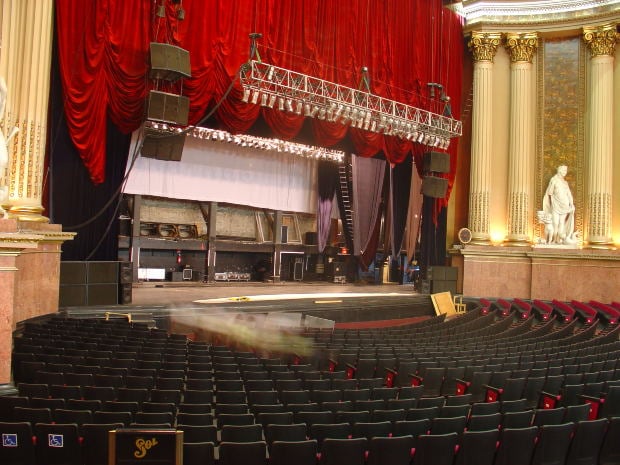Sometimes, someone says or writes something that causes me to look at a certain thing anew, never to return to the former.
Such is the case with how G.K. Chesterton has raised my appreciation for life; by virtue of sharing how he arrived at belief in God from a position of disbelief.
Namely, I’m talking about what can be summed up in two words: the encore.

Are you ready to see something anew?
On page 57 of Orthodoxy, Chesterton makes the bold statement that materialism rests ultimately upon a false assumption. That assumption being that if a thing repeats itself it is probably dead.
“People feel that if the universe was personal it would vary; if the sun were alive it would dance,” he explains. “This is a fallacy even in relation to known fact. For the variation in human affairs is generally brought into them, not by life, but by death; by the dying down or breaking off of their strength or desire.”
Huh, you say? Hang on. Let’s see where he’s going.
“A man varies his movements because of some slight element of failure or fatigue. He gets into an omnibus because he is tired of walking; or he walks because he is tired of sitting still. But if his life were so gigantic that he never got tired of going to Islington, he might go to Islington as regularly as the Thames goes to Sheerness.”
To further make the point, Chesterton brings in the ever-rising sun. “I do not rise every morning,” he says, “but the variation is due not to my activity, but to my inaction.” In other words, he says, the routine of the sun might be due not to a lifelessness, but to a rush of life.
Cool huh?
To expound, he speaks of children who, when finding a game they enjoy, kick their legs rhythmically, not through absence of life but through excess of it. “Because children have abounding vitality, because they are in spirit fierce and free, therefore they want things repeated and unchanged. They always say, ‘Do it again,’ and the grown-up person does it again until he is nearly dead.”
Grown-ups are not strong enough to exult in monotony, he says, but perhaps God is.
“It may not be automatic necessity that makes all daisies alike; it may be that God makes every daisy separately, but has never got tired of making them. It may be that He has the eternal appetite of infancy; for we have sinned and grown old, and our Father is younger than we.”
(I love Chesterton’s mind-blowing images! I can totally see God as a giddy infant wanting to “do it again!”)
Chesterton concludes, rather dramatically, “The reptition in Nature may not be a mere recurrence; it may be a theatrical encore.”
Ah! The encore.
Indeed, Chesterton says, “at the end of every human drama man is called again and again before the curtain. Repetition may go on for millions of years, by mere choice, and at any instant it may stop. Man may stand on the earth generation after generation, and yet each birth be his positively last appearance.
And there’s where my mouth drops, and I realize again that each moment is a gift, not guaranteed. Each act of ours is possibly the last, or not.
In that realization, I come back around to the fact that we are here because God has willed it, out of sheer love, and only because of that.
What will we do with the encore God has offered us? The encore of one more day, one more hour, one more second? The stage is ours, and for this day at least, we can make of it what we will.
I don’t know about you, but I feel like I want my performance to be stellar. Not perfect, perhaps, but I want the audience to leave feeling as if their hearts have been indelibly changed.
For this moment, it is enough to say thanks, Mr. Chesterton, for helping increase my appreciation for this wonderful life I’m blessed enough to be living out.
Q4U: What helped you appreciate life more this week?
Copyright 2012 Roxane Salonen
About the Author

Roxane Salonen
Roxane B. Salonen, Fargo, North Dakota (“You betcha!”), is a wife and mother of a literal, mostly-grown handful, an award-winning children’s author and freelance writer, and a radio host, speaker, and podcaster (“ Matters of Soul Importance”). Roxane co-authored “ What Would Monica Do?” to bring hope to those bearing an all-too-common cross. Her diocesan column, “ Sidewalk Stories,” shares insights from her prolife sidewalk ministry. Visit RoxaneSalonen.com


.png?width=1806&height=731&name=CatholicMom_hcfm_logo1_pos_871c_2728c%20(002).png)
Comments